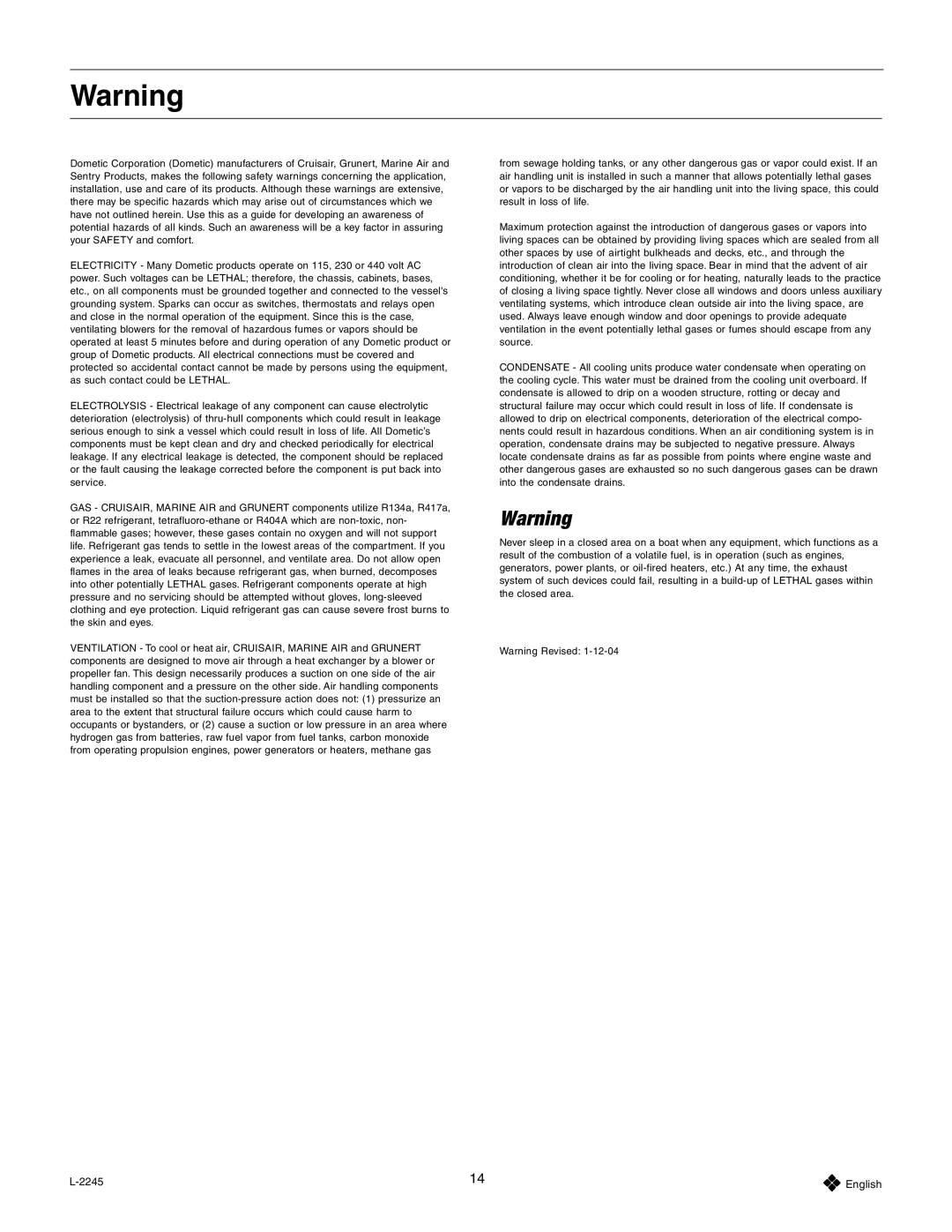7000, 7020 specifications
The Dometic 7000 and 7020 series are innovative solutions designed for superior comfort and convenience in the mobile lifestyle. They are essential products for RV enthusiasts, campers, and anyone seeking to enhance their travel experience. These air conditioning units stand out due to their efficient cooling systems, sleek design, and advanced features that cater to the diverse needs of users.One of the main features of the Dometic 7000 and 7020 series is their powerful cooling capacity. They are engineered to provide reliable temperature regulation, ensuring a comfortable environment even in the hottest conditions. The units utilize high-performance compressors that deliver consistent cooling, while the energy-efficient design helps reduce power consumption, making them a sustainable choice for travel.
The Dometic 7000 and 7020 also incorporate advanced technology for user convenience. The units come equipped with a state-of-the-art digital thermostat, allowing users to set and maintain their desired temperature with precision. This feature eliminates the guesswork often associated with manual controls, ensuring a consistent and comfortable climate.
The units are built with durability in mind, featuring robust construction that can withstand the rigors of mobile living. Materials used in the manufacturing process are chosen for their resistance to weather elements, ensuring longevity. Additionally, the units are designed to operate quietly, allowing users to enjoy peace and tranquility during their travels.
Another remarkable characteristic of the Dometic 7000 and 7020 series is their easy installation process. Designed for compatibility with various RV and camper configurations, the units can be easily mounted on rooftops without the need for extensive modifications. This user-friendly design means that even those without extensive technical knowledge can set up the units with relative ease.
The Dometic 7000 and 7020 series also boast modern aesthetics, featuring a sleek and compact profile that minimizes visual impact on the vehicle's exterior. This contemporary design not only enhances the overall look but also ensures that the units blend seamlessly with the vehicle's architecture.
In summary, the Dometic 7000 and 7020 series provide users with an optimal solution for maintaining comfort on the road. With their powerful cooling capabilities, advanced technology, durable construction, easy installation, and modern design, these units represent the best in mobile air conditioning solutions. They are a worthy investment for anyone looking to enhance their outdoor adventures while ensuring a comfortable living environment.
